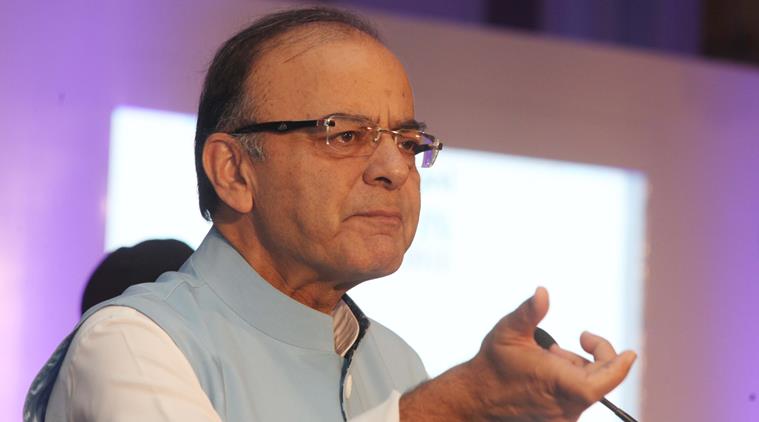Stay updated with the latest - Click here to follow us on Instagram
Allahabad HC quashes summons, case against Arun Jaitley for ‘criticising’ SC
Arun Jaitley had allegedly criticised the Supreme Court judgement on the issue of judges’ appointment.
 Arun Jaitley had approached the high court against the summons and the case. (Source: Express Photo by Dilip Kagda)
Arun Jaitley had approached the high court against the summons and the case. (Source: Express Photo by Dilip Kagda)The Allahabad High Court on Thursday quashed the summons and the case registered against Union Finance Minister Arun Jaitley for allegedly criticising the Supreme Court judgement on the issue of appointment of judges.
Taking suo motu cognisance, Judicial Magistrate Ankit Goel of Mahoba district court had registered a complaint case, accusing Jaitley of sedition, and had issued summons to him on October 19.
Jaitley — represented by Additional Solicitor General Maninder Singh — had approached the high court against the summons and the case registered by Goel on Tuesday. The matter was heard on Thursday before a single judge bench of Justice Yashwant Varma. A detailed order is yet to be made available.
“The petition was based on the ground that under Section 196 of the Criminal Procedure Code, such prosecution can be started only after getting sanction for prosecution from the state authorities. This was not done in this case. The court heard the plea and quashed the summons, as well as the case,” said Singh.
[related-post]
“The case of sedition registered by the case against the minister was quashed as Section 196 of the CrPC had not been complied with. The section is clear that sedition proceedings can be initiated against any government servant, including members of the council of ministers, only after prior sanction of prosecution from the relevant authorities concerned,” Advocate General Vijay Bahadur Singh said.
In a Facebook post, Jaitley had criticised the Supreme Court order, which had ruled against the involvement of the political executive in the appointment of judges as being based on erroneous logic. The magistrate, taking cognisance of the same, had taken a view that the criticism of the Supreme Court decision amounted to sedition.







